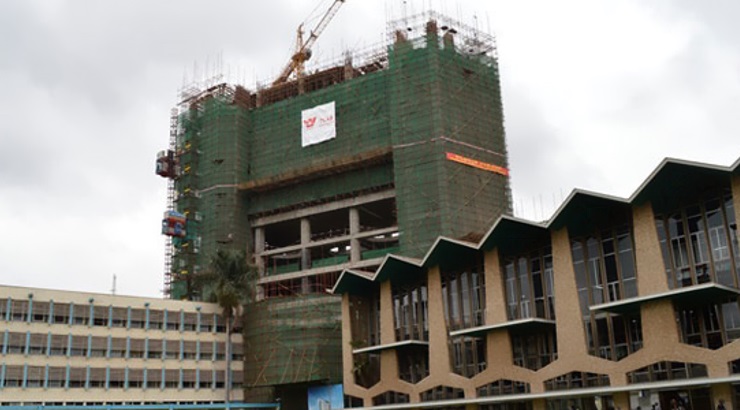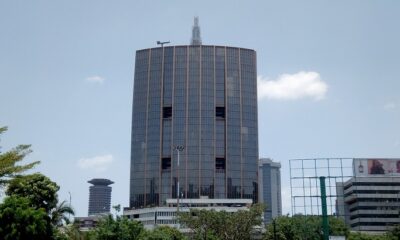Commercial Projects
University of Nairobi Towers rises above trees of the Norfolk
The project is financed from the university’s internal funds and donations.

A landmark building is beginning to take shape within the precincts of the University of Nairobi as a giant crane and metal scaffolding creep upwards.
Towering above the open space between the Education Building and Gandhi Building next to the Norfolk Hotel and the Kenya National Theatre is the proposed University of Nairobi Towers, a 21-storey office block.
On completion in 2016, the Sh2.3 billion tower, whose groundbreaking ceremony was held in May 2013, will host the university’s administration offices, lecture halls to accommodate 3,000 students, a centre for performing arts and a helipad – the first in a Kenyan university.
“Since the ground breaking ceremony on May 17, 2013, construction work on the University of Nairobi Towers has progressed unstopped. The 21-storey building is expected to transform the city’s skyline with its futuristic look,” said a recent statement from the university.
The architect for the project is Waweru and Associates Co., which won the contract in an architectural design competition held in November 2011, while the main contractor is China Wu Yi Co. Ltd.
The University of Nairobi Towers is financed from the varsity’s internal funds and donations. On Tuesday, Industrialist Manu Chandaria – through his Chandaria Foundation – contributed Sh50 million for the construction of the Chandaria Centre for Performing Arts on the fifth floor of the building.
“The arts industry is an area with a great potential for growth and can contribute immensely to the country’s economic development,” said Mr Chandaria as he presented the donation to the university.
The proposed building comes in the back of increased construction of multimillion dollar projects by local institutions of higher learning.
The fast expanding Kenyatta University has, for example, established various buildings within the precincts of its main campus, including ‘Uni-City’ – a multimillion dollar project that is being built in three phases in partnership with private developers.
The development will include an office block, hypermarket, banking halls, conference centre, retail centre, food courts, fuel station and residential apartments.
The university is also developing state-of-the-art student hostels at a cost of Sh850 million in partnership with private developers to cater for the accommodation needs of the rising number of students.












